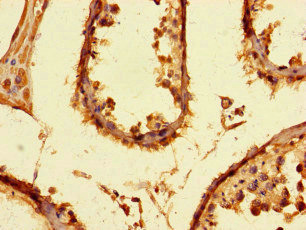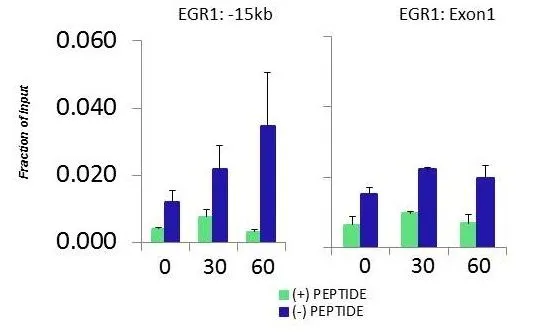
ChIP analysis of HCT116 cells using GTX47433 PRMT6 antibody. Use 0.5μg antibody GTX47433 PRMT6 antibody for ChIP assay. Quiescent human colon carcinoma HCT116 cultures were treated with 10% FBS for three time points (0, 15, 30min) or (0, 30, 60min) were used in Matrix-ChIP and real-time PCR assays at EGR1 gene (Exon1) and 15kb upstream site.
PRMT6 antibody, Internal
GTX47433
ApplicationsWestern Blot, ChIP Chromatin ImmunoPrecipitation
Product group Antibodies
ReactivityHuman
TargetPRMT6
Overview
- SupplierGeneTex
- Product NamePRMT6 antibody, Internal
- Delivery Days Customer9
- Application Supplier NoteWB: 0.2-2.5 ug/ml. *Optimal dilutions/concentrations should be determined by the researcher.Not tested in other applications.
- ApplicationsWestern Blot, ChIP Chromatin ImmunoPrecipitation
- CertificationResearch Use Only
- ClonalityPolyclonal
- Concentration0.5-1 mg/ml
- ConjugateUnconjugated
- Gene ID55170
- Target namePRMT6
- Target descriptionprotein arginine methyltransferase 6
- Target synonymsHRMT1L6, protein arginine N-methyltransferase 6, HMT1 hnRNP methyltransferase-like 6, heterogeneous nuclear ribonucleoprotein methyltransferase-like protein 6, histone-arginine N-methyltransferase PRMT6
- HostRabbit
- IsotypeIgG
- Protein IDQ96LA8
- Protein NameProtein arginine N-methyltransferase 6
- Scientific DescriptionThe protein encoded by this gene belongs to the arginine N-methyltransferase family, which catalyze the sequential transfer of methyl group from S-adenosyl-L-methionine to the side chain nitrogens of arginine residues within proteins, to form methylated arginine derivatives and S-adenosyl-L-homocysteine. This protein can catalyze both, the formation of omega-N monomethylarginine and asymmetrical dimethylarginine, with a strong preference for the latter. It specifically mediates the asymmetric dimethylation of Arg2 of histone H3, and the methylated form represents a specific tag for epigenetic transcriptional repression. This protein also forms a complex with, and methylates DNA polymerase beta, resulting in stimulation of polymerase activity by enhancing DNA binding and processivity. [provided by RefSeq, Sep 2011]
- ReactivityHuman
- Storage Instruction-20°C or -80°C,2°C to 8°C
- UNSPSC12352203

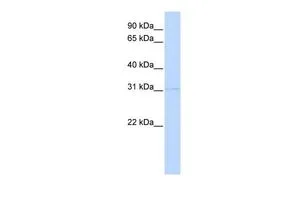
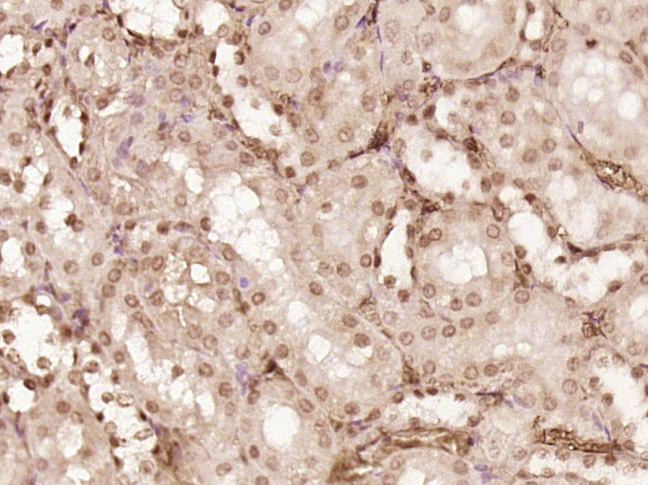

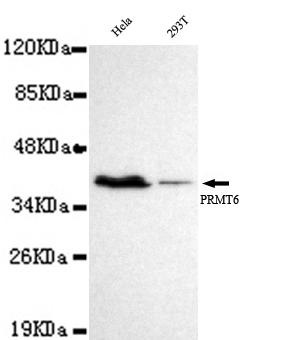
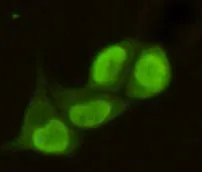

![WB analysis of A431 (1), HeLa (2), A549 (3) and HEK293 (4) cell lysate using GTX82806 PRMT6 antibody [4G2].](https://www.genetex.com/upload/website/prouct_img/normal/GTX82806/GTX82806_20170912_WB_w_23061322_769.webp)
